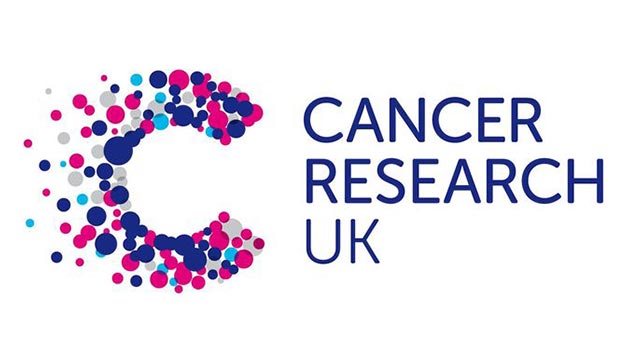
What are gifts in Wills? A guide to charitable giving in your Will

Whether or not you’ve heard of the term ‘gift in Will’ before, you might be familiar with charitable donations being included in Wills. If you’re already considering leaving something to an organisation or charity, or want to know more about whether it’s the right decision for you, here’s our quick guide, including an expert Q&A on Wills and charitable donations.
This page is sponsored by:
What is a gift in your Will? | How can I leave a gift in my Will? | Why do charities need gifts in Wills? | Who can leave a gift in their Will? | Your questions on charity gifts answered
What is a gift in your Will?

A gift in your Will is a donation made to charity in your Will. The amount of money you leave is entirely up to you. After family and loved ones are provided for, some people leave a set amount of money or a percentage of their estate as a legacy gift, whereas others may choose to leave everything to an organisation or charity, like Cancer Research UK, who use this donation to fund important research. In fact, gifts in Wills fund a third of Cancer Research UK’s life-saving work.
The bottom line is that the kind of gift that you leave and to what organisation is a personal decision, and every donation, no matter how small, helps to fund charities’ vital work.
Many people who choose to pledge a gift in their Will do so because they want to make a difference for future generations via supporting a cause of their choosing.
Here’s what Gransnetters have to say on the forums about gifts in Wills:
“I haven't written a Will yet, but charity donations are definitely an option. It'll be nice to know that some good will become of my money.”
“We have recently updated our Wills, after about 15 years. As before we are leaving about 1/3 to charity and have specified 10 or 12 charities for it to be split between - ones that we regularly give to now. Our children have the rest between them and know we are leaving a share to charity.”
How can I leave a gift in my Will?
If you are interested in leaving a gift to charity you will either need to write a new Will or update an existing one to reflect your change in wishes.
Cancer Research UK offers a free gifts in Wills guide, which contains all the information you need to take the first step in writing your Will or updating an existing one. Their guide also contains information on the different types of gifts you can pledge, what gifts in Wills have helped Cancer Research UK achieve, and also how the charity can support you in writing your Will.
Why do charities need gifts in Wills?

Gifts in Wills are vital to charities, with many organisations relying on such funding, particularly for longer term projects. As mentioned above, gifts in Wills fund a third of Cancer Research UK’s research and are vital to driving future progress.
Such gifts allow them to focus on four key areas: researching how some cancers can be prevented, bettering detection and diagnosis, developing new treatments, and improving existing ones, including radiotherapy and chemotherapy. By pledging a gift in your Will, you’re also helping Cancer Research UK invest in the Future Leaders programme, which aims to attract and nurture outstanding upcoming researchers. This enables talented new researchers to continue their life-saving work, helping to accelerate progress and see 3 in 4 people surviving their cancer by 2034.
- For more on the importance of charity gifts in Wills, see our guide to how legacy gifts make a difference at Cancer Research UK here.
Who can leave a gift in their Will?
As long as you have assets to give, anyone with a legally valid Will can leave a gift in their Will. As you get older, you might be thinking about writing a Will - although it’s advisable to have a Will and keep it up to date regardless of your age, for peace of mind.
It's not hard to make a big difference – a wide range of people leave a gift in their Will of varying amounts, and it’s important to remember that every penny makes a difference. You can also leave a share, or the remainder, of your estate to a charity. As it’s less likely to be affected by inflation, it’s the best way to ensure the value of the gift you want to make is received. You can even leave a specific item of value if you want, for example a car or piece of jewellery.
These are the different types of gifts you can leave to organisations in your Will:
- Residuary gifts - A share of an estate. For example, you may choose to leave 20% of your estate to charity after all other payments have been made. You can also leave all of your estate to an organisation too.
- Pecuniary gifts – A set amount of money that has been specified in the Will.
- Specific gifts - This is when a specified item of value is left. For example, it could be a car, a piece of valuable furniture or jewellery.
Your questions on charity gifts answered

We ran an expert Q&A on writing and updating your Will with Chloe Fairbrother, a Legacy Management Officer at Cancer Research UK, and Catherine Causey, a qualified solicitor.
We had many questions from Gransnetters keen to find out more about leaving money to a charity. To help you better understand the impact and process of leaving a legacy gift, here is a selection of answers to your questions on the topic.
I have a small amount of savings in my own name which I want to leave to charity. If I die first will this wish be carried out if I include this in my Will or does it automatically become my husband’s to do with what he wishes? - FindingNemo15
“When writing your Will, if you instruct your solicitor to include a gift of a sum of money, or the contents of a named savings account to a specific charity, then this will be honoured and the remainder of your estate will pass to your spouse or any other beneficiary you choose – although jointly owned assets (for example a shared bank account held in the names of both you and your spouse) may pass automatically to the surviving joint owner.
“You should be cautious though in leaving a gift of a specific bank account, for example, as over time account names, numbers and even banks themselves can change name – potentially causing the gift to fail.”
Will Cancer Research UK act as professional executors in an estate? If so, do you require the Will to stipulate a minimum legacy to do so? - Silverbridge
“We would always suggest that it is better to appoint somebody who you know and who will know your wishes and your personal affairs. Having said that, we are happy to be named as executor in estates where we are also named as a residuary beneficiary. A ‘residuary beneficiary’ is someone who is left a share, percentage or sometimes all, of an estate after all the other payments have been made. As a charity we have to make this clarification because of the internal costs to us of the administration, we have to ensure that we are maximising the funds available for life-saving research.
“We don’t stipulate any minimum gift to our charity, but we would not be able to act as executor if the estate was insolvent (i.e. unable to pay its debts), whether because of care fees payments or any other reason.”
I would like to update my Will and include three other charities I have supported for many years. Originally my Will did not include these. If using a charity's Will writing service would there be any difficulty in carrying out my wishes? - gran1
“Our Free Will Service is available for our supporters to make a new simple Will, or to update an existing simple Will. The addition of three other charities to your Will is a simple amendment and there wouldn’t be any difficulty in making this change.”

Will Cancer Research UK act as professional executors in an estate? If so, do you require the Will to stipulate a minimum legacy to do so? - Silverbridge
“We would always suggest that it is better to appoint somebody who you know and who will know your wishes and your personal affairs. Having said that, we are happy to be named as executor in estates where we are also named as a residuary beneficiary. A ‘residuary beneficiary’ is someone who is left a share, percentage or sometimes all, of an estate after all the other payments have been made. As a charity we have to make this clarification because of the internal costs to us of the administration, we have to ensure that we are maximising the funds available for life-saving research.
“We don’t stipulate any minimum gift to our charity, but we would not be able to act as executor if the estate was insolvent (i.e. unable to pay its debts), whether because of care fees payments or any other reason.”
About Cancer Research UK
“This year marks 20 years since Cancer Research UK was formed, and 120 years since the founding of its predecessor, the Imperial Cancer Research Fund.
Cancer Research UK has been at the heart of some of the biggest developments in cancer, including radiotherapy, chemotherapy and some of the most used cancer drugs used around the world today.
Just as past discoveries have laid the groundwork for successful prevention, diagnosis and treatment today, the research that Cancer Research UK funds and the breakthroughs they make today, tomorrow, and in the years to come will be at the heart of progress that saves and improves lives for generations to come. Cancer Research UK want to accelerate progress and see three in four people surviving their cancer by 2034.
Cancer Research UK has come so far in the past 120 years. And with the help of gifts in Wills, they will go much further.”
- To find out more visit cruk.org/legacy
Cancer Research UK is a registered charity in England and Wales (1089464), Scotland (SC041666), the Isle of Man (1103) and Jersey (247).

